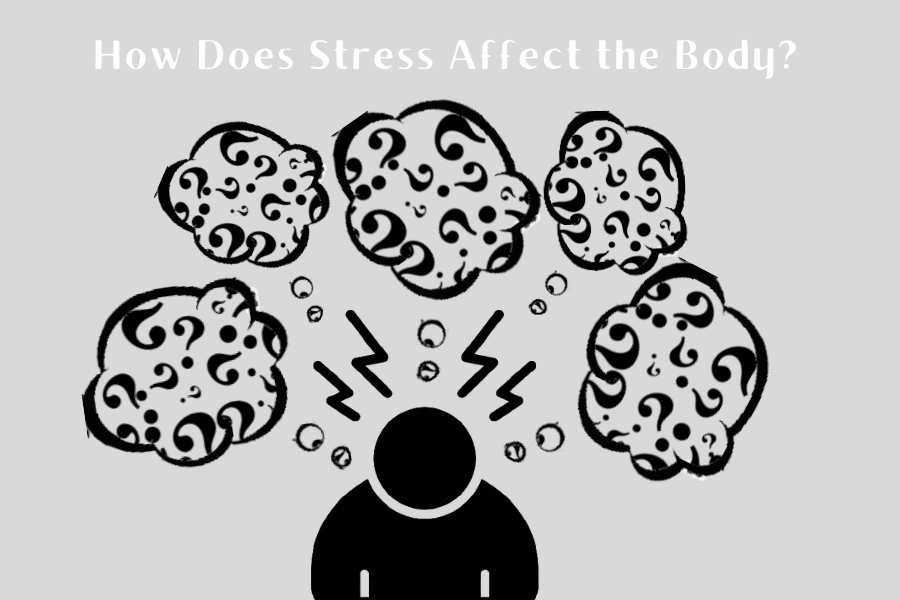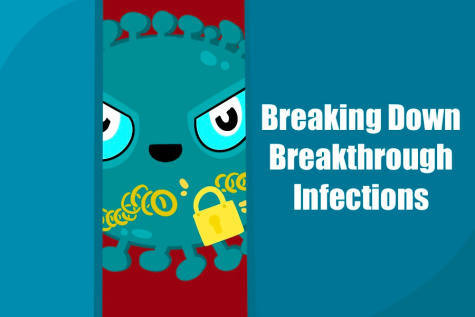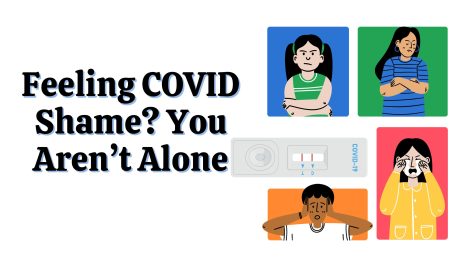How Does Stress Affect the Body?
You’re waiting in the circle at the Brewster entrance at 7:58 am. You have a test during first period. As you’ve watched the minutes tick by, your hypothalamus, a sort of control tower in your brain, has sent out the order to send in the stress hormones! These stress hormones are what trigger your “fight or flight.” They cause your breathing to quicken, your muscles to tense, and your heart rate to speed up—preparing your body in case of an emergency.
Sometimes, it’s helpful. These hormones can push you through a haunted house, a speech to your class, or a difficult test. Usually, these hormones will go back to normal after the stressful situation has passed. But if these hormones keep being released, day after day, your health will likely be at serious risk.
Many life events or different situations can induce stress. But everyone deals with stress differently. And some don’t really deal with it or use unhealthy coping mechanisms. I’m talking about alcohol, drugs, self-harm, negative mindsets, and social isolation. Each of these may have some instant gratification but have long-term impacts. Stress, left unchecked, can have severe consequences on your body and mind.
How your heart is currently dying:
More research is needed to accurately predict the effect of stress on heart health, but we have a pretty good guess. The hormone cortisol is released in stressful situations. Studies suggest that the high cortisol levels from long-term stress can increase triglycerides, blood cholesterol, blood sugar, and blood pressure. These are all common risk factors for heart disease—the leading killer of all Americans!
Even minor stress can impact long-term cardiovascular health. The release of stress hormones causes changes that promote the buildup of plaque deposits in the arteries, leading to a disease known as atherosclerosis. Clogged arteries increase the chances of blood clotting. Blood clotting is pretty bad, poor blood flow to the heart muscle will cause the heart to get less oxygen and blood, making your heart work even harder to get what it needs. One way to improve heart health is to work on a diet filled with vegetables, fruits, fish, whole grains, and low-fat milk.
#nocovidhere:
In this era of COVID-19, masks, and germs, it’s necessary not to let anything compromise our immune system. So, lots of orange juice, right? Not exactly. While the Vitamin C in orange juice might be helpful, keeping your stress levels down is equally important. Stress stimulates the immune system, which can be a help for urgent situations. This stimulation can help people avoid gross infections and quickly heal wounds.
However, when we are stressed, our body can’t fight off antigens (foreign cells that stimulate an immune response) as well, making us more susceptible to viral infections. According to Healthline, “Stress hormones will weaken your immune system and reduce your body’s response to foreign invaders. People under chronic stress are more susceptible to viral illnesses like the flu and the common cold, as well as other infections. Stress can also increase the time it takes you to recover from an illness or injury.”
The stress hormone, corticosteroid, can also suppress the effectiveness of the immune system. Finally, stress can indirectly affect the immune system when people use unhealthy coping mechanisms to relieve stress. One way to improve your immune system is to drink water. Staying hydrated helps your body naturally eliminate bacteria and toxins that cause infections.
TW: vomit
Maybe, right before a killer History DBQ, you’ve felt slightly energized, in the form of jitters and a spiked heart rate. This reaction is due to extra blood sugar (glucose) production by your liver to give you a burst of energy. While this may seem helpful, if you’re under chronic stress, your body may not be able to keep up with the extra glucose surges.
Fun fact: the digestive system has 100 million nerve cells lining the pathway from the esophagus to the rectum. These nerves are firing when you get stressed. One of the effects of stress is when your esophagus starts to spasm, increasing your acid reflux and causing you to feel nauseous. Then you throw up.
Have you ever felt butterflies in your stomach? Not the lovey-dovey type, but the one when your math teacher is handing back a test. If so, you know how stress affects your lil intestines. In more severe cases (which you should definitely see someone about), stress can cause a decrease in blood flow and oxygen to the stomach, which could lead to cramping, inflammation, and an imbalance of gut bacteria. Try eating yogurts, almonds, or drinking kombuchas to improve gut health.
How to keep calm and breathe on:
I basically just told you you’re going to die. And, I didn’t even cover all the other effects stress has on your brain, skin, memory, bones, organs, and more. Lol sorry, but just keep in mind, stress really isn’t good for you.
One of the most critical ways of relieving stress is exercise! It may seem ironic, putting physical stress on your body to decrease mental stress. Exercise, especially running, helps lower your body’s stress hormone levels and releases endorphins. Endorphins are chemicals that improve your mood and act as a natural painkiller. Exercise is also known to help people sleep better and even improve confidence. When people exercise regularly, they feel more confident and happy in their bodies, leading to overall better wellbeing. So go join the track team and get your summer bod!
Another way to reduce stress is managing caffeine intake. Every person has a different tolerance to caffeine. Going above and beyond that, like me on the morning of my math quarterly, has multiple unseen side effects. If you notice caffeine makes you anxious or jittery, it’s probably best to cut back or even remove the Celsius and ice coffees from your diet.
The final way, but not the only way, to minimize stress is by avoiding procrastination. It’s definitely a challenge. Procrastination just leaves you struggling to catch up in a short amount of time, negatively affecting sleep and stress levels. To decrease procrastination, try writing a to-do list or making a schedule for your afternoon or week.
A nice memo for keeping your stress levels down is “keep calm and carry on.” Stressing over tardiness, exams, or friends is just not worth it. The health of your body and mind will always be more important.
Works Cited
Jennings, Kerri-Ann. “16 Simple Ways to Relieve Stress and Anxiety.” Healthline, www.healthline.com/nutrition/16-ways-relieve-stress-anxiety#9.-Learn-to-say-no.
Pietrangelo, Ann. “The Effects of Stress on Your Body.” Healthline, www.healthline.com/health/stress/effects-on-body#Central-nervous-and-endocrine-systems.
“Stress.” Centre for Addiction and Mental Health, www.camh.ca/en/health-info/mental-illness-and-addiction-index/stress.
“Stress.” Mental Health Foundation, www.mentalhealth.org.uk/a-to-z/s/stress.












